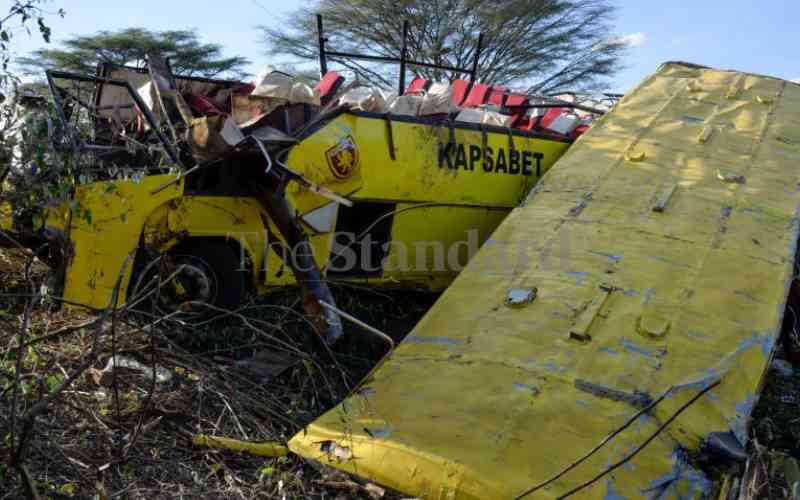×
The Standard e-Paper
Stay Informed, Even Offline

Last week's road accident on the Nairobi-Mombasa highway, claiming 11 lives from Kenyatta University resonated deeply with every parent, I included.
In another unfathomable incident last week, I witnessed heavy night traffic caused by a drunken driver who halted his car in the middle of Mombasa Road, succumbing to sleep on the wheel near the Imara Daima diversion.